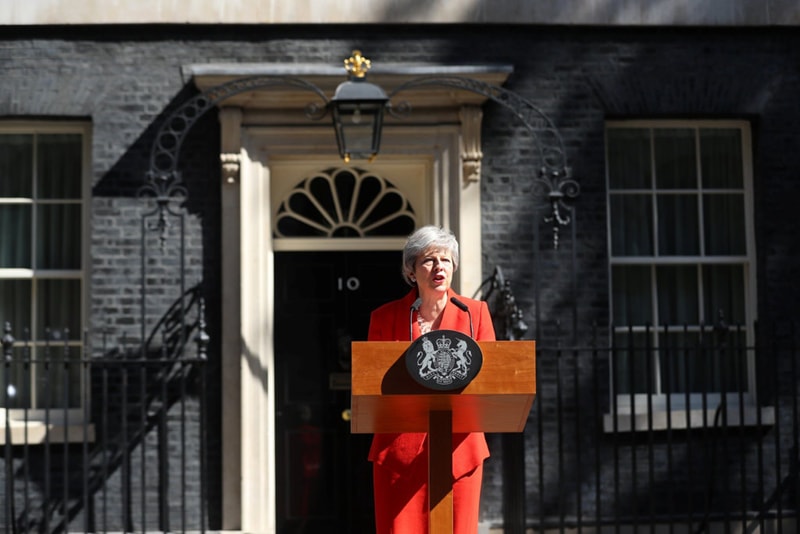British Prime Minister announces resignation in tears because he cannot complete Brexit process
British Prime Minister Theresa May announced her resignation on June 7, after meeting with the Chairman of the 1922 Committee on the morning of May 24.
Theresa May announced her resignation after meeting with Graham Brady, the chairman of the 1922 Committee, on the morning of May 24 (London time). This committee gathers Conservative MPs who oppose May and announced that they have prepared everything to conduct a second vote of no confidence in May if she does not leave the position of British Prime Minister.
|
| Mrs. May announced that she will resign on June 7. Photo: Reuters. |
Reading her resignation notice in front of the British Prime Minister's Office in tears, Theresa May said she was leaving with regret for not being able to complete the Brexit process.
Mrs. May also defended her decision that the British government needed to find every way to make Brexit happen because it was the democratic choice of the British people in 2016 that any ruling British government must respect.
Mrs May then called on her successor to find ways to reach consensus in the British Parliament, advising that “compromise is not a bad thing and life depends on compromise”.
Mrs. May's resignation as British Prime Minister on June 7 will end an extremely complicated and fierce period in British politics over the past three years related to Brexit.
Theresa May became Prime Minister of the United Kingdom on July 13, 2006, replacing Prime Minister David Cameron, who had to resign after the referendum that led to Britain choosing to leave the European Union.
As a Brexit supporter, Mrs. May started the Brexit negotiations with the EU with a hard stance, intending to free the UK from all ties with the EU. However, the difficulties within the UK, combined with the unpredictable complexity of the Brexit dossier, especially the issue of the Northern Ireland border and the consequences of leaving without a deal, forced Mrs. May to continuously make many concessions to the European side.
In late November 2018, after 17 months of arduous negotiations, Mrs. May’s government reached a Brexit deal with the EU. However, this deal was severely criticized within the UK and was rejected three times by the British House of Commons.
The complete Brexit deadlock has caused Mrs. May to lose all support within the Conservative Party as well as fail to find a compromise with the opposition Labour Party.
Mrs. May's plan to put forward a new 10-point "Brexit deal" to vote in the British House of Commons in early June is considered the last straw, causing factions within the Conservative Party to resolutely pressure Mrs. May to resign.
Mrs. May will resign on June 7 after welcoming US President Donald Trump to the UK from June 3. Currently, former Foreign Secretary Boris Johnson is considered the leading candidate to replace Mrs. May as leader of the Conservative Party and hold the position of British Prime Minister./.

